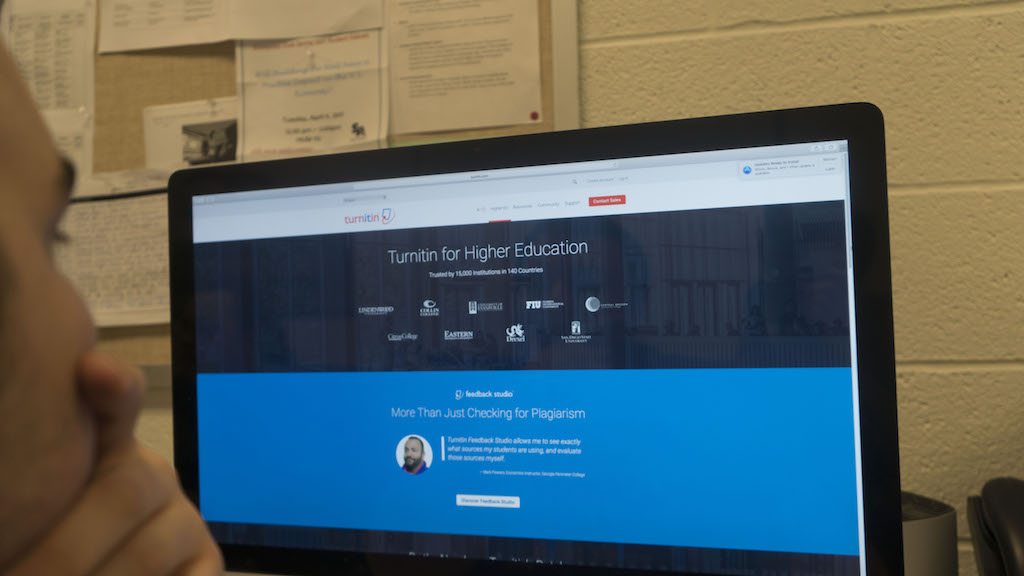10 tips to avoid copying work
Turnitin is a website that allows students and professors to turn in a paper to see if it is plagiarized.
May 1, 2017
If you give yourself plenty of time to write a paper, you’re less likely to cheat on it. If you understand the instructions and follow them to the letter, you’re less likely to cheat. If you take care to cite every source; you’re less likely to cheat—even when you don’t mean to.
That’s the advice of Dr. Brian Riley, an AACC English professor and the co-chair of the Academic Review Committee on campus.
You know the [class] with the five-page paper due three weeks before the end of the term?” Riley said. ”Yeah, start it early. By doing so you can alleviate the stress and panic of doing it the night before.”
And you can lessen your temptation to cheat on the assignment.
In a Campus Current survey of 428 students, 93.2 percent of those who admitted to cheating said they did it because they wouldn’t have time to finish the assignment if they didn’t.
Riley said deadline pressure is the undoing of many students who otherwise might never consider cheating.
Here are 10 ways to prevent yourself from cheating in school:
1. Study. The more prepared you are for a quiz, test or paper, the less you’ll need to find answers from anywhere except your own memory.
2. Not good at studying? Ask your friends or parents to help you. Make notes or flashcards that another classmate can use to quiz you.
3. Tell the people close to you about the assignment you’re working on and the tests you’re expecting to take in class. The more people know about your work, the more they will ask you about it. They’ll want to know how you did. Do you really want to have to lie to them to cover up your cheating? Let the people around you help keep you honest.
4. Make the upcoming assignment the center of your world. Record yourself reading your own notes, and play the audio back to yourself while you’re driving to school or running errands. Surround yourself with the material you need to learn, and before long, you’ll know it well enough to ace your assignment without resorting to dishonesty.
5. Know the rules. Some students say they don’t really know what cheating is. You should familiarize yourself with the class syllabus—which is sure to outline exactly what your professor considers cheating—and what the consequences are for students who fabricate, plagiarize or copy answers from other classmates or look up information on a closed-book test.
6. Get clear. If you still don’t understand what constitutes cheating, ask your professor. There’s probably not a teacher on campus who wouldn’t be delighted to have a conversation about academic dishonesty with an interested student.
7. Learn what you need to cite in a research paper and what you don’t. Google it. Ask your professor. When in doubt, attribute. Too many citations are better than too few.
8. In a bind? Ask for an extension. It’s worth a shot. And it’s better than hoping you won’t get caught looking up answers on your cellphone during an exam.
9. Ask the librarian or a Writing Center tutor for help if you’re afraid you’re doing something wrong on a paper. Those experts know exactly how to advise you to get the right information.
10. Get caught. If you do happen to get caught, it might teach you not to do it again. Even if you don’t get caught, it’s a pretty good bet that you will feel horrible about it. Stop yourself from cheating, and your guilt, fear and shame will stop, too.












